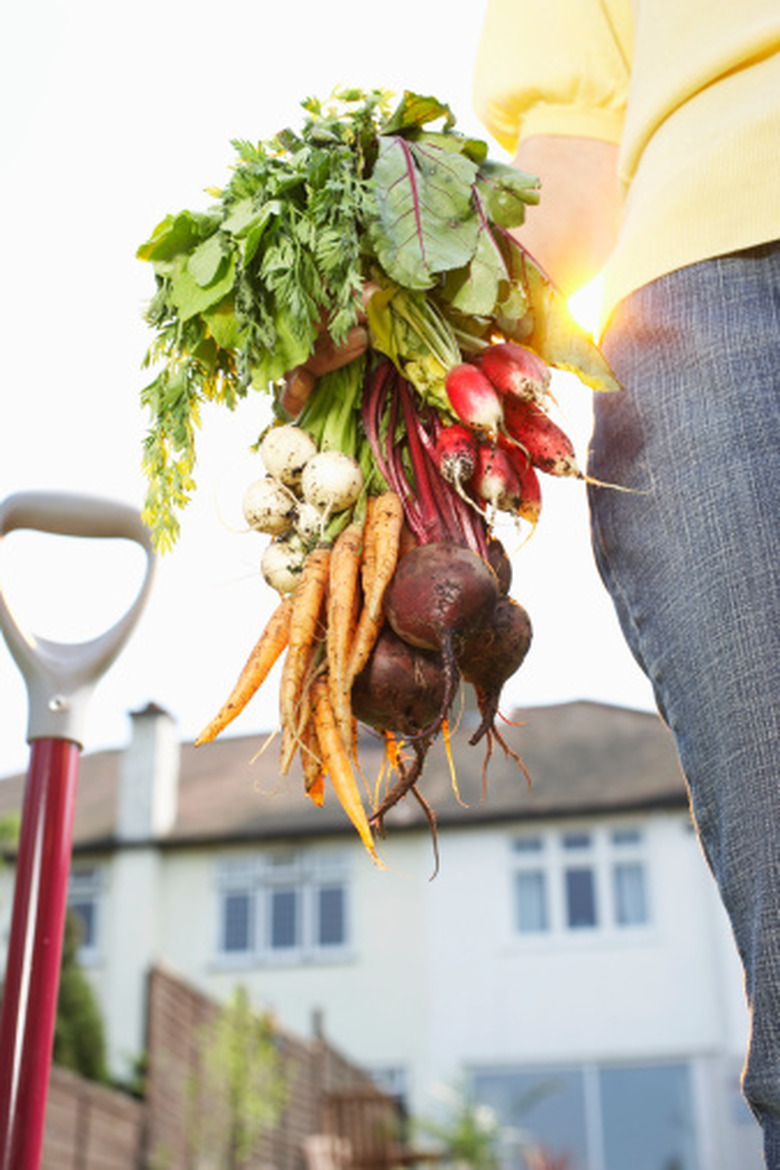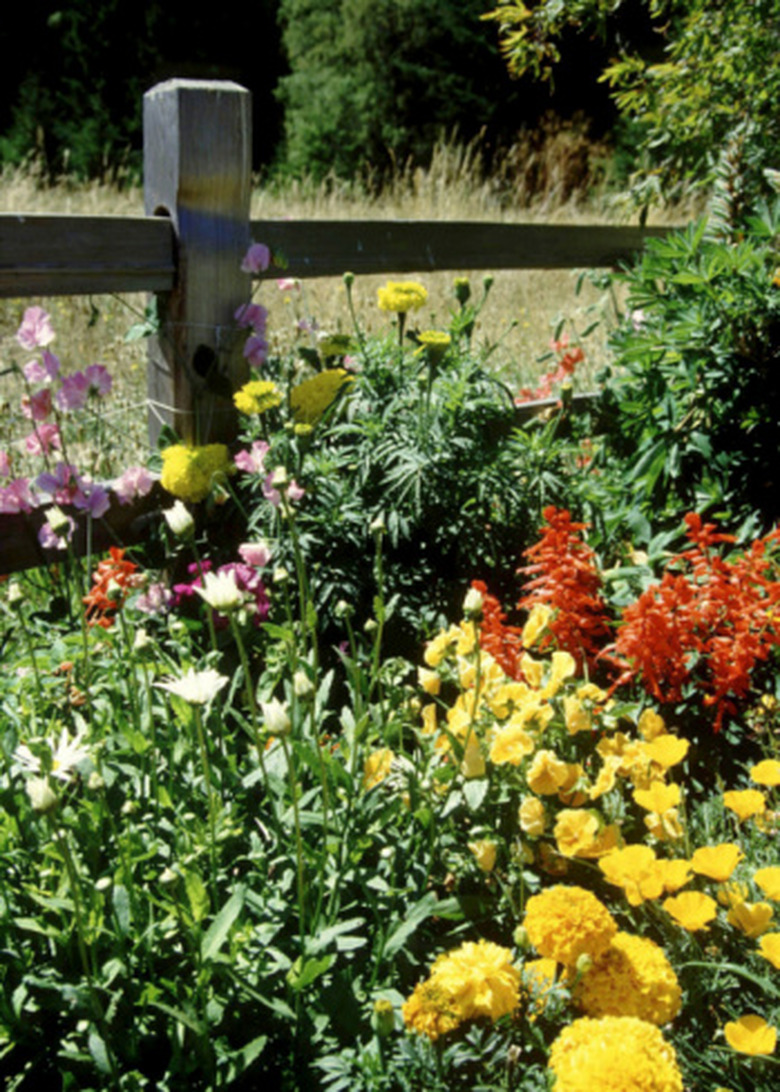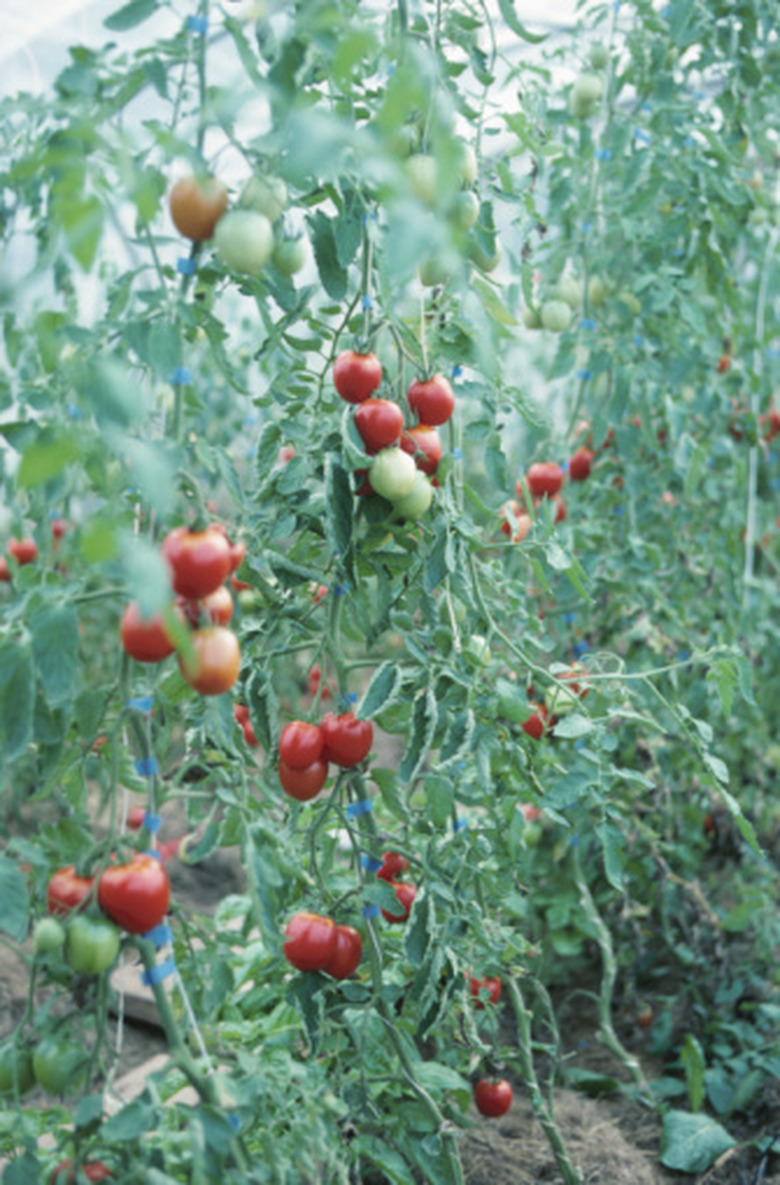Does Overcrowding Plants Affect Their Growth?
There are a number of factors that affect plant growth, including sufficient light, water, soil and soil nutrients. Overcrowding will affect plant growth in many ways, including encouraging the development of diseases, hampering fruit and flower production, stimulating insect and pest problems and influencing the overall growth and development of a plant. Plants have a natural defense mechanism called allelopathy that is designed to prevent overcrowding and protect them from its consequences.
Overcrowding Root Crops
A perfect example of the impact that overcrowding has on the growth of root vegetables is seen in the planting of radishes. Radish seeds are so small that it would be virtually impossible to separate them and plant a single seed at the spacing recommended by the seed company. This also applies to carrots. Once the seeds germinate and the seedlings are sufficiently large, you must thin them in order to provide the bigger and healthier seedlings with the opportunity to grow and develop properly. When crops such as radishes and/or carrots are not thinned, there is no space for the root, which is the vegetable in this case, to grow and develop.
Allelopathy and Overcrowding
Allelopathy is defined as the chemical process that plants use to prevent other plants from germinating or growing close to them. Alleopathy is designed to prevent overcrowding so that plants are healthier. Overcrowding can compromise the space that plants need for root growth. It can also decrease the amount of nutrients that any of the crowded plants can absorb from the soil, causing developmental problems in all of the plants. Overcrowding can also allow taller plants to block sunlight from smaller plants, preventing photosynthesis and essentially starving the plants. Photosynthesis is the process through which plants convert light energy into chemical energy, which is then stored in sugar bonds.
Allelochemicals
Allelochemicals are compounds that one plant species releases to prevent another plant species in the vicinity from encroaching on its space and overcrowding it. These chemicals dissipate quickly, making them very effective as a natural herbicide. Allelochemicals are released from plant roots, leaves, fruits and even from decaying plant matter, such as compost or mulch. Allelochemicals that are released from mulch are able to affect the growth of flowers, fruit- and vegetable-producing plants and trees and shrubs.
How Allelochemicals Work
There are several ways that allelochemicals work to kill the targeted plants. They can interfere with the activation of growth hormone or block protein synthesis. They can also inhibit cell division in specific areas of the roots, inhibiting root growth and, by extension, overall plant growth. They may also starve plants by preventing photosynthesis. Without light, plants cannot convert light energy into the chemical energy that is stored as sugar. A plant without energy will die.



